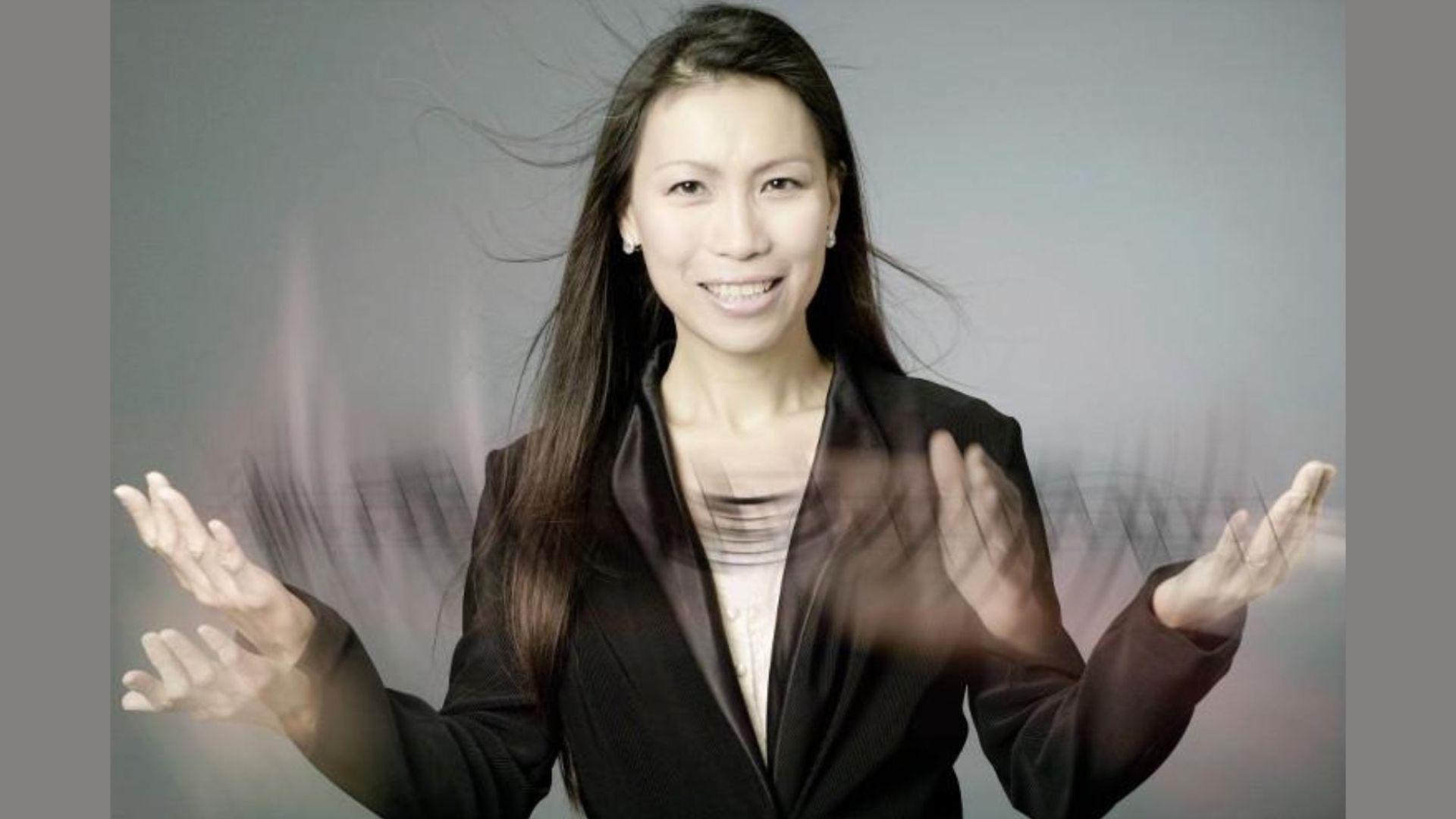At 57, Belinda Foo was the only woman in the team representing Singapore in the Heptathlon event at this year’s World Masters Athletics Championships in Tampere, Finland.
At 57, she took part in the 80m hurdles, running 200m and 800m, high jump, long jump, shot put and the javelin throw.
Then on 2 July, Singapore Masters Track and Field Association (SMTFA) proudly posted on its Facebook page that Foo broke the Asia Masters Athletics Championships (AMA) W55 80m hurdles record with a time of 13.72s.
She was placed fifth at the World Masters Athletics Championships Heptathlon after competing in the seven events over two days. She also beat her personal best by more than 1,000 points.
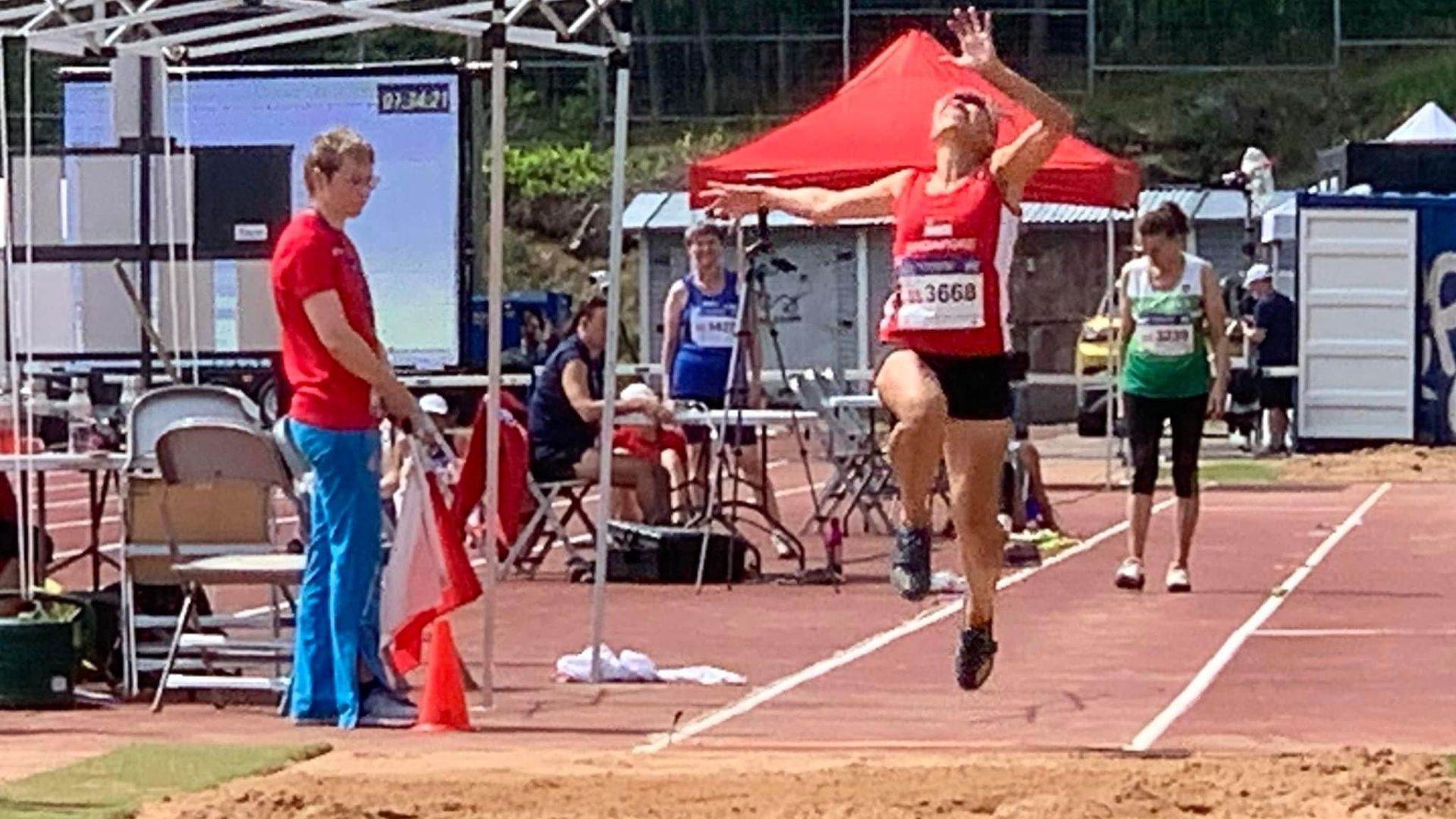
Her achievement, some would say, is not at all surprising as “sports has always been a big part of my life”, Foo tells TheHomeGround Asia.
Training with the men to up her game
In her teens, she became interested in squash, having watched it being played.
Having grown up in a single-parent household, there was no extra cash for extra curricular activities outside of school. That was when national squash player and friend from school Shandini Dhanabalan told her about the Pepsi Squash Training Scheme “and that was when I signed up”, she recalls.
Launched in 1978, the Pepsi Squash Training Scheme is an attempt to uphold the high status of squash in Singapore by improving the calibre of Singapore’s national players not only through training but also scouting the schools for the best talents.
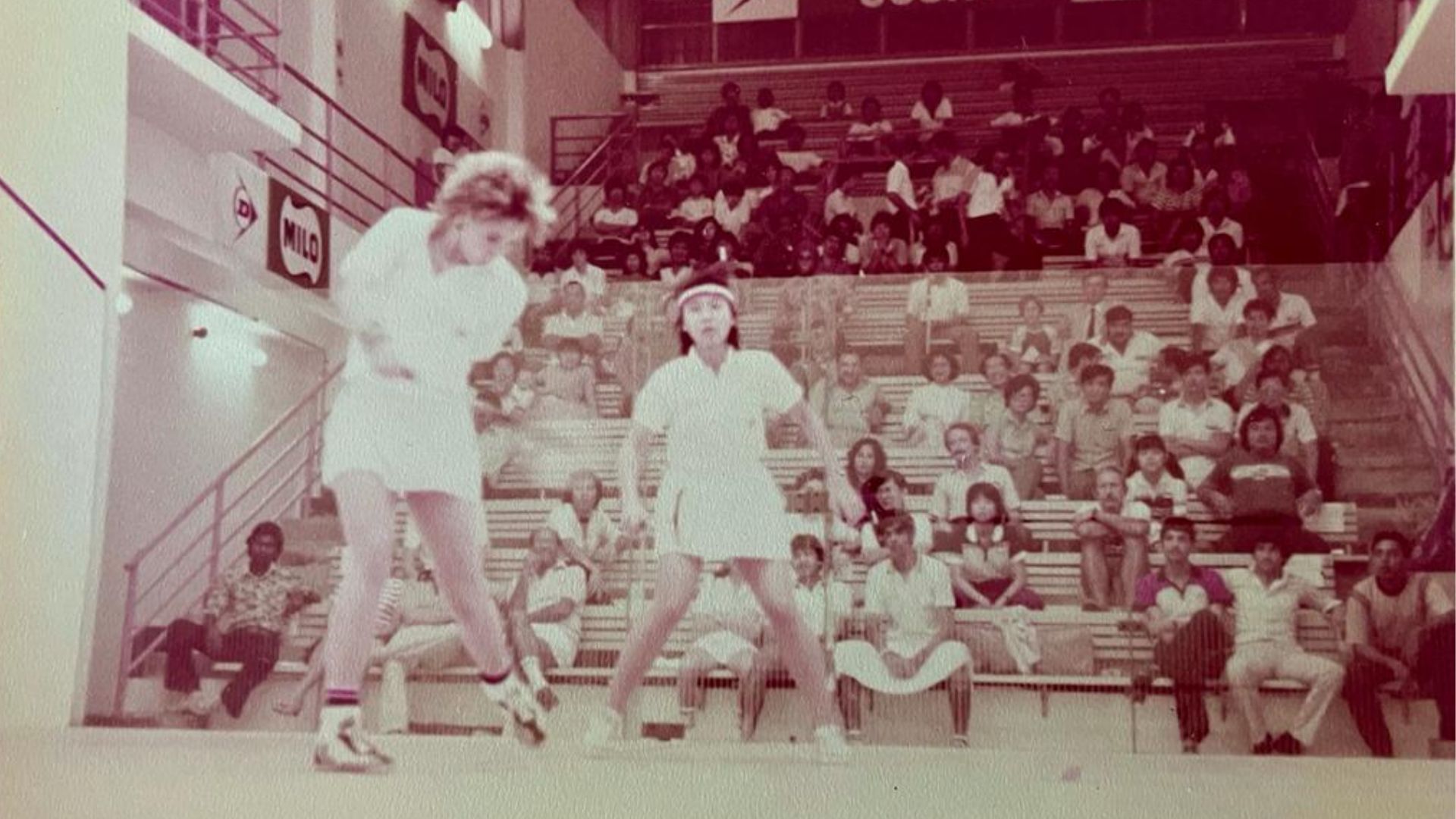
Through the scheme and under national coach Martin Webb, who trained her with the boys team, her technique improved “in leaps and bounds”.
“I was the only female player training at the courts in the former Raffles Institution (RI) at Grange Road,” Foo says, laughing.
She was only 17 when she became the 1982 Under-19 Squash Champion. She also represented Singapore in the Asian Junior Championships in 1983 and the East Asian Championships in 1984, bringing home the gold medal both times.
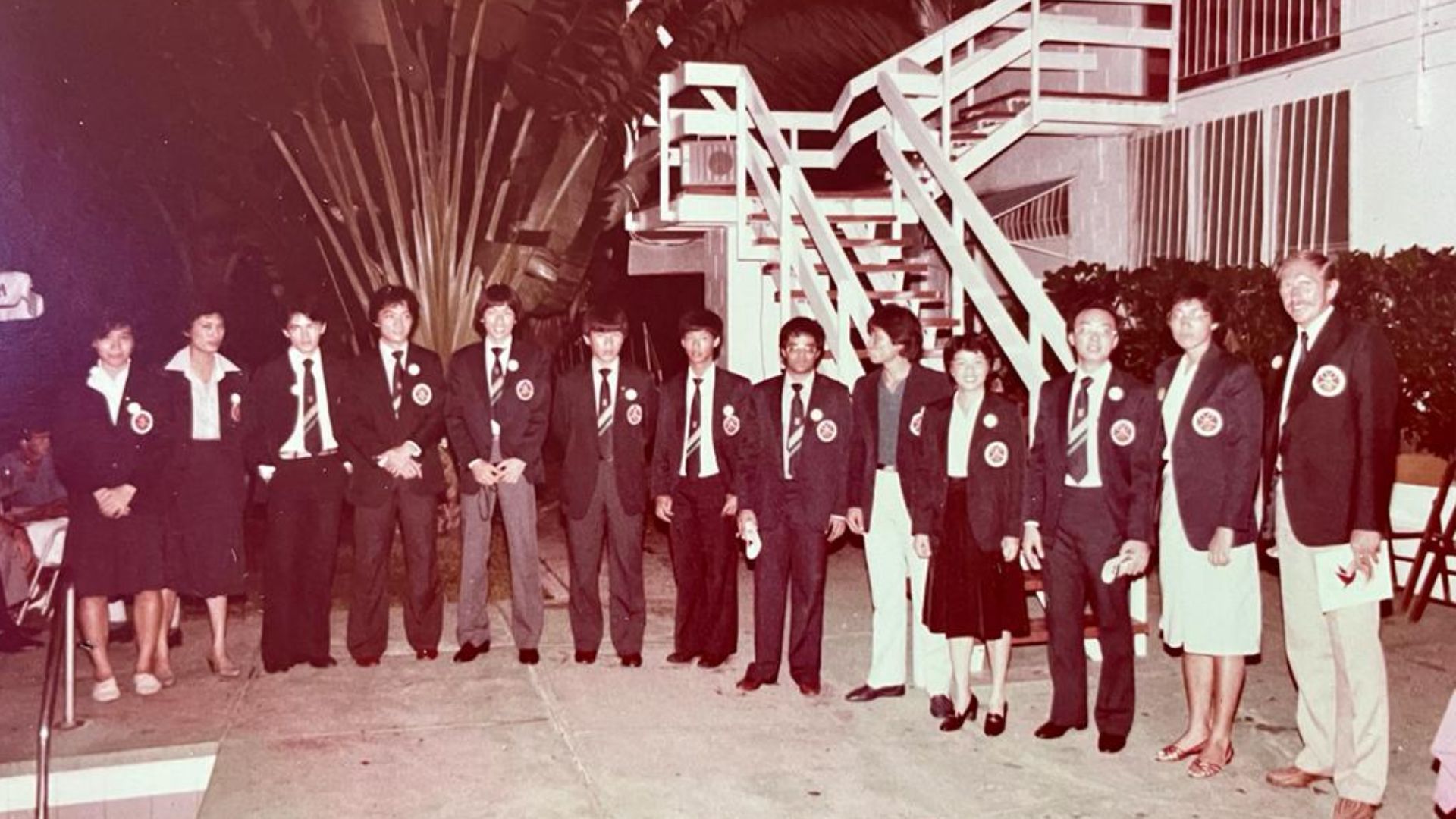
After an impressive performance at the Asian Junior Championships in 1983, Foo replaced national player Diana Yow at the games in Papua New Guinea. Yow was the fifth player to pull out after Lim Seok Hui, Sue Paton, Lyn Hodgins and Tracy Oh, dashing Singapore’s hope of upsetting East Asia women’s champion Hong Kong.
While she was playing squash and acing the sport, Foo discovered her love for water-skiing, and when Singapore hosted the World Water-ski Championships in 1993, “I was given the opportunity to represent the nation in water-skiing in the jump event”, she says.
She got the music in her
Foo says her mother had wanted her to become a lawyer and break out of her status in society.
“She was very disappointed when I did not make it to law school. I was both disappointed and relieved because I was not interested in studying law. Instead, I wanted to study music,” she says.
Since law school was out of the way, Foo started to work by teaching music and playing the piano at hotel lounges. That was where she was talent spotted and asked to join a “Top 40s band”, with which she played for two years, singing six nights a week.
“The scene was draining, both physically and mentally. I realised that performing was not for me and I was looking at writing music as a career so a friend suggested I should further my music education at the Grove School of Music (GSM), where I studied composition, arrangement and film scoring,” she says.
The school in Los Angeles, USA, was set up by American musician, composer, arranger and educator Richard Dean Grove. Its students include Michael Jackson and Linda Ronstadt, and its teachers Henry Mancini and Bill Conti.
“I was fortunate to have had ‘angel’ sponsors for my studies at GSM where the approach to music education was vocational and we were prepared for the music industry by a faculty comprising professionals working in Hollywood. There was a regular stream of guest lecturers like Lalo Schifrin who composed the ‘Mission Impossible’ theme,” Foo says.
She returned to Singapore and worked at a production company with the late Cultural medallion recipient Iskandar Ismail, film producer Ricky Ho and guitarist Shah Tahir. The local music industry was then at its peak and Foo was kept busy writing pop song arrangements and music for National Day.
She has even written for the Singapore Symphony Orchestra (SSO), the Singapore and Hongkong Arts Festivals and composed music for several musicals including, “Darkest before Dawn” and “The Other Wiseman”.
After being in the music industry for 25 years, Foo changed direction and is currently a lecturer at the LASALLE College of the Arts.
“I believe it is vital to stay abreast of the music and arts scene. I may not agree with everything that is new but I think it is important to know what is trending since I am supposed to equip my students with the right knowledge for the industry,” she says.
She adds that students “hold up mirrors” so she has to “walk the talk”.
From the confines of four walls in squash to the wide open space of athletics
But sports never left Foo as it has become part of her DNA since her squash days.
“Many friends have asked me to return to squash but it’s the same black ball and the same walls so I decided to do something else. Three children later and at 40, I began participating in age-group triathlons, and then ventured off-road to do the Xterra, an off-road triathlon,” she says, adding that she qualified for the Xterra World Championship in Maui, Hawaii in 2013.
A year short of her 50th birthday, while her teenage son was training on the track, she decided to go back to her “fast twitch” roots and one thing led to another “and I found myself learning to hurdle, jump over a bar backwards (the Fosbury Flop), throw a javelin… among four other things”.
“Before I knew it, I had signed up for the Heptathlon at the 2015 World Masters in Lyon,” she says.
But ageing meant “plummeting oestrogen levels” and “bouts of injuries”.
“So, that was when I felt compelled to learn more about how older bodies respond and adapt to exercise and training. While there is no lack of coaching and training information for younger athletes, there isn’t a lot out there that’s appropriate for older ones. This led me on the Sports Science path: I was compelled to learn how the body worked and played, and how to keep it running, jumping and throwing year on year: improving, extending mobility and attenuating age-related performance decline,” she says.
So it was back to school again for Foo, graduating in 2020 with a Bachelor of Science in Sports Science.
“Now that I understand how the older body works and how far it can be pushed, I’m ready to push mine to its limit for the next competition,” she says.
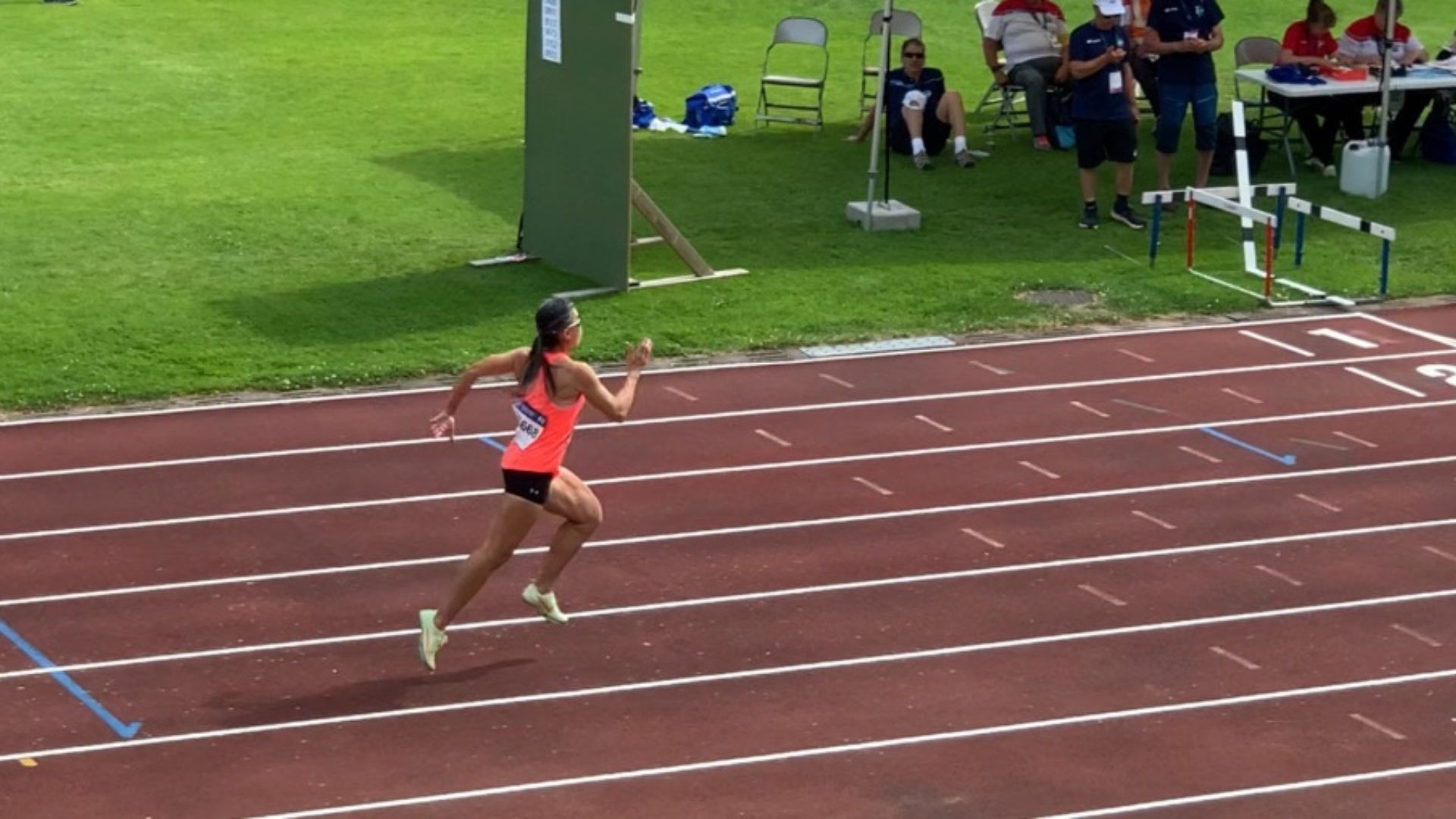
And for seniors who want to do the same, Foo says no one is ever too old for masters sports and that the body is amazingly adaptable.
“If you commit to regular, progressive training, you can get better, stronger, fitter. I’m a firm believer in the James Clear-Dave Brailsford idea of ‘aggregation of marginal gains’. It’s the 1 per cent margin for improvement in everything you do. The belief is that if you improved every area by just 1 per cent, then those small gains would add up to remarkable improvement,” she says.
RELATED: Defying age barriers at world track and field championship
Join the conversations on TheHomeGround Asia’s Facebook and Instagram, and get the latest updates via Telegram.

